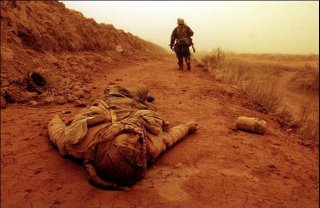
Photo by James Hill / The New York Times
We gratefully remember you, Jesus,
because your life and death teach us how to live as your disciples.
The thirty years of your life, Jesus, must have seemed fleeting - until now. Nailed to the cross you carried to this place of execution and hoisted above the heads of Roman soldiers, and in the presence of your mother and a few women, you spend the last three hours of your life in agonizing pain. Death mercifully claims your faithful but broken heart.
Under the loathsome conditions of Jesus' passion his identity as messiah seems a misnomer, but his title of rabbi stands firm. Jesus' pathetic dying illumines the sensibilities of a military-trained centurion and a street-smart common thief. Two seemingly unlikely people recognize him for who he really is because they perceive his authenticity and truth under the guise of enormous suffering and death. His enduring torture and violent death have been replicated countless times in war sequences and of captured prisoners brought to our attention by courageous photographers and news commentators seeking truth. It is no wonder that thousands of war veterans are mentally diseased by Post Traumatic Stress syndrome and receiving treatment in VA hospitals. The consequences of combat will haunt their psyches the rest of their lives and bruise or destroy many of their significant relationships. They need our understanding and assistance.
Death cannot be understood without compassion. Compassion teaches me that when my brother dies, I too die. Compassion teaches me that my brother and I are one. That if I love my brother, then my love benefits my own life as well, and if I hate my brother and seek to destroy him, I destroy myself also. The desire to kill is like the desire to attack another with an ingot of red-hot iron: I have to pick up the incandescent metal and burn my own hand while burning the other…. Love is the seed of life in my own heart when it seeks the good of the other. - Thomas Merton